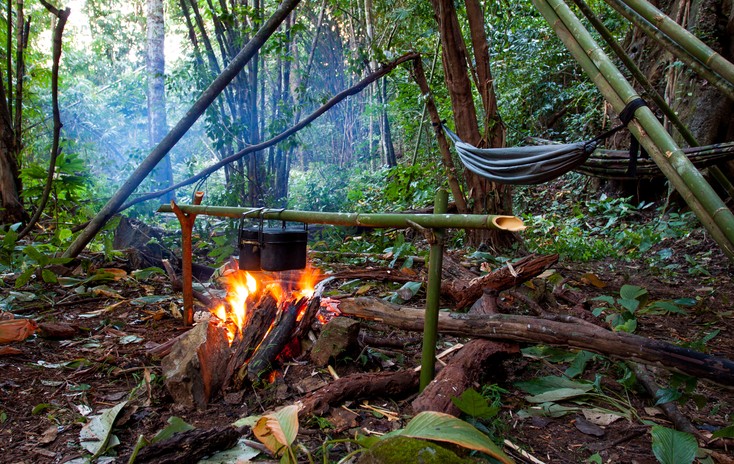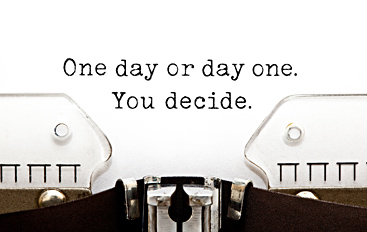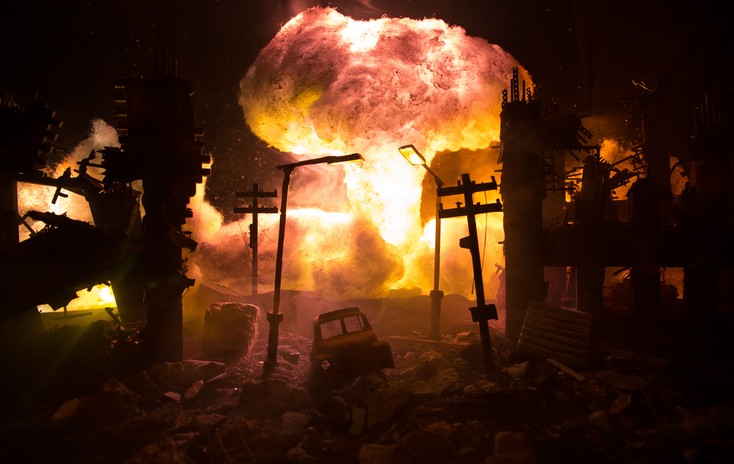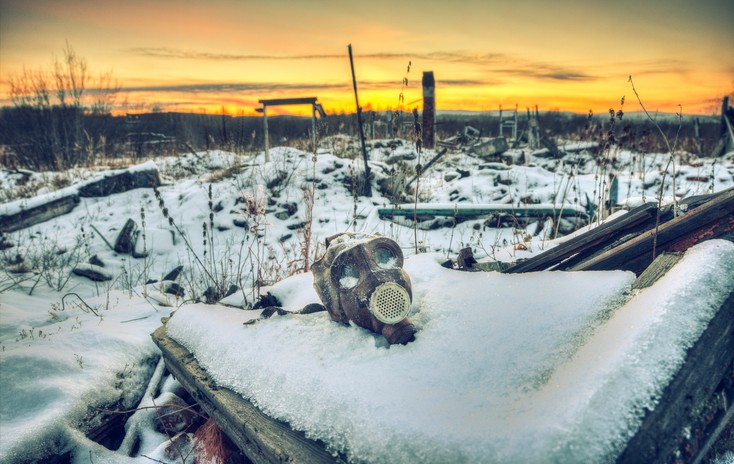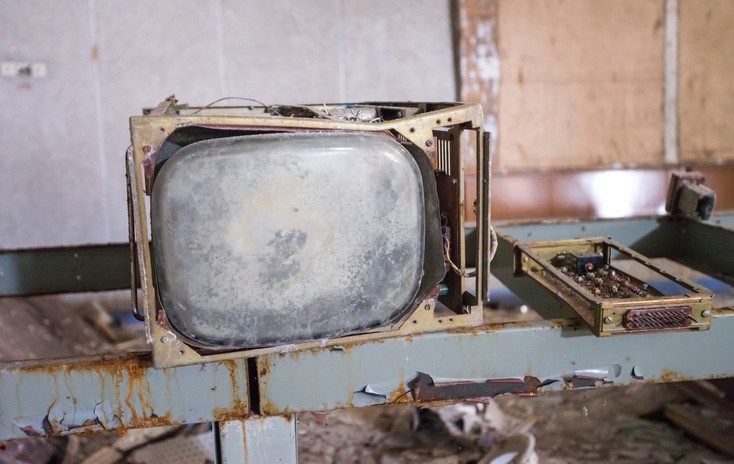How to Really Begin Prepping
This page outlines a planning method that can be used to move from reading about prepping to beginning actual prepping. It's for complete beginners, and also for any prepper who'd like more of a routine to follow to structure their time and how they use it.
Because prepping is such a broad activity, with so many different things to address — and because there's no commonly accepted, well-structured method of organising your time — it's easy to get disorganised. This page gives a suggestion for how to organise your valuable hours spent on prepping to make the greatest amount of progress.
The structure given on this page is meant as a guide. You can follow it as much or as little as you prefer. You can (and it's a good idea to) fine-tune the exact amounts of time suggested, and tasks performed, to whatever suits your own situation the best.
You can use any method to structure your time that works for you. Some people may not need one at all — yet in practice this is rare. Often without an overall plan, disproportionate amounts of time and resources tend to get spent in certain areas that you find easy and/or interesting. And other areas can be neglected. Another thing which can happen is that too much focus is spent on reading and not enough on doing. Since it's easier for most people to sit in front of a screen (or book) than it is to get out and start doing things — which are quite often things you've never done before and don't really know how to do yet.
So the main purpose of the method is:
- To make sure all the important areas and goals are eventually covered, and not only (or almost only) the ones you find interesting, enjoyable, and easy.
- To make sure there's plenty of attention given to practical tasks and practical skills. This can require some amount of self-discipline — especially since prepping doesn't come with a formal syllabus like when you begin a course at a formal college of education.
The method given on this page is just one suggestion which may work well for some people. And can be used as a basic framework to get started actually doing things in real life.
Write Down Your Ideas and Plans
The next thing I recommend is to start writing some of your ideas and plans down. You can use a real paper notebook (or folder, etc. Or you can use an electronic device. I use a combination of both.
There are advantages and disadvantages to both methods. Electronic form allows easy editing and updating, and allows you to very easily back up your documents offsite (even just by emailing them to yourself). You can use a word processor (such as Microsoft Word, or one of the free equivalents like LibreOffice, or an .rtf file (as you would write in WordPad on Windows), or a plain text file, or a spreadsheet, or any format (or combination of formats) you find the most useful.
Paper form means that you've done something physical "in real life" and not just on a computer (or phone or tablet, etc.). Paper form also means you'll still have access to your notes and plans if there's no electricity (which is highly possible in many future collapse scenarios). Even if you have off-grid electricity, something like a nuclear EMP can still destroy your computer equipment (unless deliberately shielded against it). So there are good reasons to use both methods.
Having said that — to begin with, perhaps using a real paper notebook and pen or pencil is the best, because it's doing something physical "in real life" and not just on a computer. If you have concerns about privacy/secrecy that relate to people you live with, who may read your paper notes, then perhaps an electronic document you can more easily conceal is better.
Either way (or both ways), write some notes down somewhere. You can start doing this anytime, but right now would be a good time to start.

Writing down your prepping plans in a real paper notebook can help turn ideas into reality. Photo by Pixabay / StartupStockPhotos.
An Overview of this Method
Prepping tasks will be split into four categories; and then each category further split into two areas: theory and practice.
The four categories are:
- Beginning from where you are now / "starting line" / short-term goals.
- Final / Where you want to be ideally / "finish line" / long-term goals.
- Additional goals (anything you can't easily fit into one of the above two categories).
- Your greatest areas of weakness.
Within each of these four categories, dedicate some time to:
- Reading and/or studying, and then planning what you're actually going to do.
- Actually doing it (including attempting it, and learning how to do it, in a practical sense in real life and not just reading or watching videos).
My initial suggestion is for one hour for each of these. Which makes eight hours in total. If you were to do this once a week, that would be eight hours of prepping time a week. If you were to do it fortnightly, that would be four hours a week. If you went over the entire plan once every four weeks (or approximately once a month), that would be two hours a week. If you wanted to spend an entire day you could do all eight hours in a day. If you have the luxury of being able to prep as a full-time activity, you could do the eight-hour plan for five days a week. Or any number of days you have available for prepping.
You can do the eight hours in any order you like. For example, 1A, 1B, 2A, 2B, 3A, 3B, 4A, 4B, and then repeat. Or you might find it easier to group the theory/learning/planning parts (A) together and do them in the evenings or nights (or on the train etc.), and then do the practical parts (B) in the daytime (such as on the weekend). Or any combination that works for you.
After you get more experienced, and have more of an idea what you're going, and going to be doing, you could decrease the learning/theory time and increase the practical time. Like perhaps half and hour of theory and then 90 minutes of practical work. Or any ratio that you find optimal.
Also, don't think of the hours (or whatever time intervals you choose) as fixed in concrete. It's not like you're doing an exam and that's all the time you have. If you don't get nearly as much done as you'd hoped, that's no problem — just add it to the list to do next time (or sometime later). In that case, next time you may not need any theory time at all (if you already know exactly what you'll be doing in practice).
In some cases, when you discover that attempting something in real life is much more difficult than you expected — that discovery can and should change the way you prioritise your activities. For example, if you decide that learning to make friction fire is one of your first priorities — and then discover that it's going to take a whole year to get that mastered — it might be better to think of some other activities that could be more productively and successfully done in that year. There are plenty of different tasks and goals in prepping, and you don't want to be beating your head against a brick wall trying to do just one thing when there are many other important things you could probably do a lot easier.
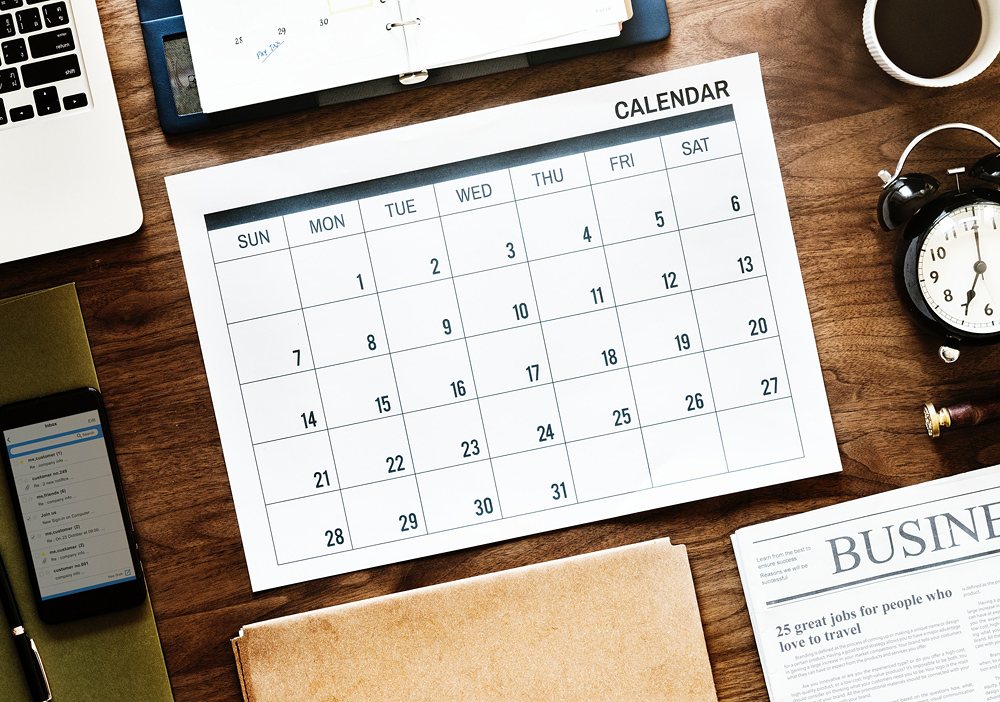
Try out different systems and aids for organising your time, to see what works best for you. But most people will do much better if they have some method of organisation, rather than just plodding along randomly. Photo by rawpixel / Unsplash.
The main thing is just to be doing real things, and the most useful and high-priority things, in real life, on a regular basis. Any system which gets you doing that as in actually doing it, on an ongoing basis — is a good system for you.
Each of the four categories will be described (with examples) in more detail further down on this page.
You Don't Need to Know and Do Everything
One thing to remember about these ideas (and any ideas you see/hear/read about prepping at all) is that you absolutely don't need to do, or know how to do, absolutely everything there is you could do to improve your future in a collapse/disaster situation.
When you look at prepping information from all the different sources it can sometimes feel overwhelming. This is especially true if you're thinking "I need to know about, and do, and have all these skills and things or I'm going to die". For one, you're going to die eventually anyway, irrespective of whether it's before or after "the collapse". And secondly, there are very many potential different situations and combinations of possibilities — you can't cover everything there is you possibly could cover, and nor would you want to.
Prepping and survival are all about choosing the most important, highest priority things/needs — and then learning and doing what you can about those highest priority things. That's all. Anything more than that is a luxury. Luxury is nice to have, but it's not the most important thing there is (pretty much by definition).
You don't have to be 100% stoic and spartan about this. Enjoyment of life is itself a basic need. The more enjoyment you can find in things that are relevant to prepping, the better. Clearly there are some things that you'll find more enjoyable than others. It's good to have things you can think of as "interests and hobbies" that fall within the realm of prepping-related activities.
But also, many of the things you need to do in prepping (and also in life after a collapse, perhaps more obviously) are going to be work. And feel like work. Because they are. And if you're not getting "paid" for that work immediately, it can be discouraging. In a strong sense this work can be thought of as investment, rather than as something you get a weekly wage for.
But like any kind of work, it's just something that you do, as part of your life. Not a massive emergency situation, hopefully. In fact the ideal of prepping is to get all the important things done early enough so that when the collapse does happen, you're as ready for it as you can be. And there isn't a massive ongoing feeling of emergency, as would be experienced at that time by most (or all) non-preppers.
This may not happen completely, but the idea overall, as best as you can, is to go about prepping just like living your ordinary life — plodding along, at a comfortable and healthy pace, and doing the things that need to be done. With some of them being things you enjoy. And others not so much, but you still do them, because (like work) they need to be done.

Most of prepping is fairly routine and a lot like living your ordinary life — it's not an endless emergency situation. That's the reason to be a prepper, and not wait until it is an emergency situation. Photo by Markus Spiske / Unsplash.
So instead of thinking of prepping as a massive (and essentially endless) list of things you need to have and need to do, as soon and as fast as you can — think of it as just living your life, a bit at a time, and taking it as it comes. Which is just like ordinary, familiar, modern life except that your set of priorities is completely different. Which means that the things you do in prepping are mostly completely different to what most modern people do in their pre-crash, everyday lives.
The other main things that are different between prepping and familiar modern everyday life are that in prepping, you can't just copy all the other "normal" people around you (unless you know a lot of preppers in real life). And because of that, in prepping you have to make a deliberate effort (and plans) to do the things that need to be done, rather than just go along with things how they happen. Of course you can copy other preppers, but that's something most people have to deliberately try to do, rather than just copying the things that the people all around them in modern life are doing.
So you decide on what things need doing, try them out, and take that as it comes. Which often means re-adjusting your goals and priorities as you go. But, now that you're a prepper, this is just living your life. It's not waiting for everything to be ready and prepared enough, and then you start living your life.
In other words, even though the end goal (to be prepared for the future) is important — the end goal is only something that you use to decide on how you're going to live right now. It's not like you're waiting for that goal to be achieved so that you can become complete. You're complete right now — you're a prepper. The only thing you need to do from here onwards is to decide how you're going to spend your time as a prepper. You can take your time with that...
...As long as you actually do take the time to do it, that is. Which highlights the other thing that most people will usually need to change. It's a busy world. The modern world especially so. There are very many demands on your time. This means that to be a prepper, for most people there will be things that have to be given up from modern, high-tech, entertainment-driven, luxurious, opulent life. That's just how it is. There are only 24 hours in a day, and seven days in a week. To add extra activities means that some other things from your existing life must be done less. What those things are is entirely up to you.
Detailed Explanations and Examples
This section of the page is still incompleted. To recap, these are the four categories to organise your prepping time and tasks into:
- Beginning from where you are now / "starting line" / short-term goals.
- Final / Where you want to be ideally / "finish line" / long-term goals.
- Additional goals (anything you can't easily fit into one of the above two categories).
- Your greatest areas of weakness.
You can read more information about the short-term vs. long-term goals as introduced here, and in more detail here. You greatest areas of weakness are discussed here.
To be continued soon ...
A practical task to continue with: How Much Water Would You Have If the Taps Ran Dry?
Prelude to Catastrophe The world had been teetering on the edge of conflict for years. Political tensions, economic rivalries, and territorial disputes had escalated, creating a global atmosphere of distrust and fear. Nations fortified their borders...
Nuclear Winter
A nuclear winter is a theoretical scenario that would follow a large-scale nuclear war, characterized by severe and prolonged climatic cooling and other catastrophic environmental effects. Here's what it might be like: ...
Movies and Video About Nuclear War
Here are some online videos that are recommended for preparing to survive nuclear war, and general nuclear war and nuclear bomb information: Protect and Survive ...

 Welcome to Prepping.com.au, the new web magazine.
Welcome to Prepping.com.au, the new web magazine.
 What is Prepping? A guide for normal people to get started.
What is Prepping? A guide for normal people to get started.
 How to use this site. When all else fails, read the instructions.
How to use this site. When all else fails, read the instructions.
 This is your mission, should you choose to accept it.
This is your mission, should you choose to accept it.




